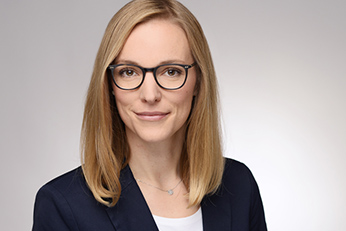
Planes, trains and automobiles, not to mention micro-mobility options like bikes and scooters. Would-be travellers have never had so many mobility options to choose from for getting from A to B. But what combination of these offers the quickest, most affordable, reliable and greenest option for getting from door to door, especially for journeys that involve air travel? That’s the challenge that researchers in the recently-launched Modus project will seek to address, as Annika Paul, Modus coordinator from Bauhaus Luftfahrt, explains in this interview.
What is rationale and main objectives of the Modus project?
The main objective of the project is to assess the role of air transport within an integrated and intermodal transport system, looking at entire journey door-to-door. More specifically we aim to identify and assess (future) drivers for passenger demand for, and supply of, mobility, and how these impact passengers' modal choices. This enables the development of multiple scenarios of future mobility pathways, taking into account new regulatory frameworks and environmental standards, or new business models, and covering a time horizon of 2030 and beyond.
Why is it important to think about air transport in a multimodal/intermodal context?
Intermodality is a top priority in high-level European transport agendas, such as Flightpath 2050 with the stated goal of enabling 90% of citizens to reach any place in Europe within 4 hours door to door by 2050, for journeys including an air segment. Air transport is therefore an important contributing mode to reaching this vision. The challenge is understanding the competition and the complementarity between different transport modes, addressing capacity shortages in the respective modes, while also meeting passengers’ increasing demand for mobility choices that are smarter and greener.
Is COVID impacting the rationale/planned work of the project?
The Covid-19 pandemic has impacted the European and global mobility landscape in 2020; the Modus project represents an opportunity to analyse the relevance and impact of Covid-19 in the decision-making process of passengers and operators in Europe.
How could the model be used in solutions targeting passengers? What benefits do you hope your project will bring?
Modus aims to provide important insights into the passenger experience by significantly improving the knowledge of travellers' preferences and expectations, and on how different factors influence the demand for air and rail transport. This includes the detailed analysis of passengers' preferences with regard to a modal choice, going beyond the mere travel time and price parameters, and taking into account aspects such as environmental considerations, or comfort during the journey.
Our hope is that our research will result in a holistic modelling approach that covers the door-to-door travel and illustrates the impact on (air) transport capacity - in particular at airports - and passenger flows. For this purpose, the Modus consortium plans to make use of various data sources to model the interaction between different transport modes including, for example, Eurostat database, World Bank database, or national statistical databases providing transport statistics, drawing on the consortium’s experience in other EU-projects, such as DATASET2050 or Domino.
The modelling approach builds on the already well-developed (air) mobility model, 'Mercury', developed by the University of Westminster and Innaxis over the past years, mostly focused on the gate-to-gate segment of passenger travel itineraries, providing both advanced and classical passenger and flight metrics. This will be extended within Modus to a much more comprehensive door-to-door context. It will also be complemented by RNEST, the research version of an ATM simulation tool used by EUROCONTROL, which allows the modelling of air traffic, including flight trajectories and ATM processes.
The Modus project has received funding from the European Union’s Horizon 2020 SESAR research and innovation programme on the topic SESAR-ER4-10-2019 ATM Role in Intermodal Transport under grant agreement No. 891166 with a 998.875 Euros grant amount.
Modus consortium (Bauhaus Luftfahrt (coordinator), University of Westminster, Innaxis, EUROCONTROL, Skymantics, International Union of Railways, and Ecole Nationale de l'Aviation Civile) combines intermodal expertise and experience to meet these objectives.

